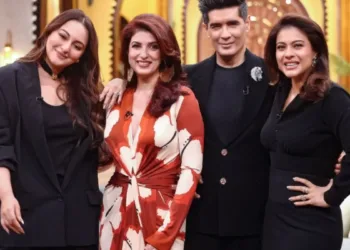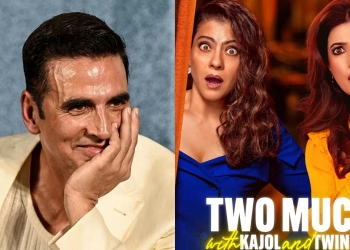Tottenham face a fascinating 2025-26 season under new manager Thomas Frank, having won the Europa League but finished 17th in the Premier League. With Champions League football returning and a complete tactical overhaul ahead, five critical questions will determine whether Spurs can bridge the gap between European glory and domestic consistency.
The most remarkable season in modern Tottenham history has ended with silverware, sackings, and stunning contradictions. Ange Postecoglou delivered the club’s first trophy in 17 years by winning the Europa League, yet was dismissed just 16 days later due to a catastrophic Premier League campaign that saw Spurs finish 17th – their worst domestic season since 1977.
Enter Thomas Frank, the Danish tactician who transformed Brentford from Championship hopefuls into established Premier League overachievers. The 51-year-old faces the ultimate managerial challenge: taking a team that finished one place above relegation straight into the Champions League while maintaining the momentum of European success.
Table of Contents
The Historic Europa League Triumph
Tottenham’s journey to European glory was nothing short of extraordinary. Brennan Johnson’s 42nd-minute goal secured a 1-0 victory over Manchester United in Bilbao, earning Spurs their third UEFA Cup/Europa League title and making them joint-second most successful in the competition’s history alongside Inter Milan, Juventus, and Atlético Madrid.
The triumph was particularly significant given the context. Tottenham became the lowest-placed team ever to qualify for Europe’s elite competition, surpassing the previous record held by a team that finished 14th domestically. This historic achievement unlocked a staggering $130 million revenue boost, including $35.4 million from their Europa League campaign and an additional $28.1 million guaranteed for Champions League qualification.
Premier League’s Six-Team Champions League Representation
For the first time in Champions League history, a single league will have six representatives, with Tottenham joining Liverpool, Arsenal, Manchester City, Chelsea, and Newcastle United in the 2025-26 competition. This unprecedented achievement demonstrates the strength of English football while highlighting the remarkable nature of Spurs’ European qualification despite domestic struggles.
Thomas Frank: The Tactical Revolutionary
Frank joins Tottenham on a contract running until 2028, having been described by the club as “one of the most progressive and innovative head coaches within the game”. His appointment represents a dramatic shift in philosophy from Postecoglou’s attacking approach to what many expect will be a more pragmatic and defensively solid foundation.
Frank’s Brentford Legacy
| Season | League Position | Goals Scored | Goals Conceded | Achievement |
|---|---|---|---|---|
| 2021-22 | 13th | 48 | 56 | Premier League debut |
| 2022-23 | 9th | 58 | 46 | Best-ever finish |
| 2023-24 | 16th | 56 | 65 | Survival secured |
| 2024-25 | 10th | 66 | 59 | European contention |
Frank’s reputation for data-driven recruitment and player development saw him unearth gems like Ollie Watkins, Ivan Toney, Saïd Benrahma, and David Raya, often selling them for huge profits while maintaining competitive standards.
Question 1: Can Tottenham Handle Champions League Football as the Premier League’s 17th-Place Finisher?
The central paradox of Tottenham’s current situation cannot be overstated. They are, quite literally, the worst domestic team ever to qualify for the Champions League. Yet their European pedigree in 2024-25 was exemplary, progressing through the league phase with authority and maintaining their composure throughout the knockout rounds.
The Physical Demands Challenge
Under Postecoglou, Tottenham ranked among the Premier League’s most physically demanding teams:
- Distance covered: 111.5 km per 90 minutes (top 3)
- Sprints: 167.5 per 90 minutes (top 3)
- Off-ball runs: 159.0 per 90 minutes (top 3)
- Final third pressures: 55.2 per 90 minutes (top 3)
This intensity contributed to significant injury problems last season, with many blaming Postecoglou for demanding too much from his players. Frank must determine whether these injury issues were systemic or tactical, particularly given the increased demands of Champions League football.
Rotation and Squad Depth Concerns
The same squad that struggled to balance Europa League and Premier League commitments will now face the step up to the Champions League. Unlike the Europa League, where Postecoglou could afford heavy rotation, the Champions League demands consistent quality throughout the squad – a luxury Tottenham may not possess.
Question 2: Will Late Transfer Business Hurt Tottenham Again?
Daniel Levy’s tendency to leave transfer business until the final weeks of the window has become a source of frustration for supporters, potentially weakening the club’s negotiating position and reducing new signings’ preparation time.
Key Transfer Targets and Needs
| Position | Target/Need | Estimated Cost | Priority Level |
|---|---|---|---|
| Number 10 | James Maddison replacement (ACL injury) | £40-50m | Critical |
| Centre-Back | Marc Guehi (Crystal Palace) | £60-70m | High |
| Midfielder | Morten Hjulmand (Sporting CP) | £50m | High |
| Winger | Jack Grealish (loan from Man City) | Loan fee | Medium |

With James Maddison suffering an ACL injury in pre-season, the need for a creative midfielder has become urgent, yet Tottenham’s approach remains unchanged despite the obvious time pressure.
Pre-Season Integration Timeline
Frank faces three Premier League games before the transfer window closes:
- Home vs Burnley (August 17)
- Home vs Bournemouth (August 24)
- Away vs Manchester City (August 31)
Any late signings will miss crucial early fixtures, including potential Champions League qualifying rounds and the Premier League opener against newly-promoted Burnley.
Question 3: Can Dominic Solanke Rediscover His Goalscoring Touch?
Tottenham broke their transfer record to sign Dominic Solanke for up to £65 million last summer, but his first season yielded mixed results. While his overall contribution was positive, his goalscoring output raised questions about value for money.
Solanke’s 2024-25 Performance Analysis
| Competition | Games | Goals | Assists | Goals per 90 | Impact |
|---|---|---|---|---|---|
| Premier League | 28 | 8 (non-penalty) | 3 | 0.31 | Below expectations |
| Europa League | 17 | 6 | 2 | 0.38 | Key contributor |
| All Competitions | 45 | 14 | 5 | 0.34 | Mixed results |

The statistics tell only part of the story. Solanke’s pressing, movement, and link-up play were instrumental in Tottenham’s Europa League success, leading the line throughout their triumphant campaign. However, for a club that invested heavily in his goalscoring ability, the return was underwhelming.
Frank’s Track Record with Strikers
Frank has an excellent history of developing centre-forwards, with Ivan Toney, Yoane Wissa, and Ollie Watkins all improving significantly under his guidance. His tactical approach could unlock Solanke’s potential, particularly given his emphasis on creating clear-cut chances rather than relying on individual brilliance.
Question 4: Is This Squad Too Young and Inexperienced?
Following Son Heung-min’s departure to LAFC, only Ben Davies remains from Tottenham’s 2019 Champions League final squad, creating a leadership vacuum at the worst possible time.
Squad Age Profile Comparison
| Category | Tottenham 2024-25 | Premier League Average | Rank |
|---|---|---|---|
| Average Starting XI Age | 25 years, 169 days | 26 years, 180 days | 3rd youngest |
| Players Over 30 | 1 (Ben Davies) | 4.2 average | Bottom of league |
| Champions League Experience | 6 players | 8.5 average | Below average |

The departure of experienced players like Son, Fraser Forster, and Timo Werner has further reduced the average age, potentially creating challenges in high-pressure situations.
Leadership Challenges
Frank acknowledged the importance of finding a new captain, stating: “I would like a captain that can bring the group together and can set standards. So, for the captain to be one of the best trainers, if not the best trainer”.
With limited options, the most likely candidates include:
- Cristian Romero: Quality leader but injury-prone
- Guglielmo Vicario: Goalkeeper with strong presence
- Micky van de Ven: Young but committed defender
Question 5: Can Frank Make Tottenham Entertaining AND Successful?
The biggest challenge facing Frank is striking the balance between entertainment and results. Postecoglou’s commitment to attacking football was admirable but ultimately cost him his job, as Tottenham became a team neutrals enjoyed watching while their own fans suffered through constant defeats.
Defensive Stability Requirements
| Metric | 2024-25 Performance | Target Improvement | Frank’s Brentford Average |
|---|---|---|---|
| Goals Conceded | 65 (16th worst) | Under 50 | 52 per season |
| Clean Sheets | 8 | 15+ | 12 per season |
| Set-Piece Goals Conceded | 18 | Under 10 | 8 per season |
| Defensive Actions per Game | 42.1 | 50+ | 48.3 |

Frank’s Brentford teams were known for combining defensive solidity with attacking verve, spending more time in low blocks (28%) than any other team while being outscored by only four teams in 2024-25.
Tactical Flexibility Expectations
Frank must navigate several competing demands:
- Fan Expectations: Attractive, attacking football
- Defensive Necessity: Reducing the 65 goals conceded last season
- European Requirements: Tactical sophistication for Champions League
- Squad Limitations: Working with existing personnel
The Road Ahead: Fixtures and Expectations
Tottenham’s fixture list presents both opportunities and challenges, with a relatively gentle start against Burnley followed by testing encounters with Manchester City and Bournemouth.
Key Early Season Tests
| Month | Notable Fixtures | Difficulty | Impact |
|---|---|---|---|
| August | Burnley (H), Man City (A), Bournemouth (H) | Mixed | Season tone-setter |
| November | Chelsea (H), Man United (H), Arsenal (A) | Very High | Title credentials test |
| December | Brentford (A), Crystal Palace (A) | Medium | Frank homecoming |
November represents a particularly challenging period with back-to-back home games against Chelsea and Manchester United, followed by the first North London derby away at Arsenal.
Financial Implications and Squad Building
The Europa League triumph has transformed Tottenham’s financial landscape. Beyond the immediate prize money, Champions League qualification could generate up to $130 million in additional revenue, including matchday income averaging $7.6 million per game at the Tottenham Hotspur Stadium.
This windfall provides Frank with genuine resources to strengthen the squad, but success depends on intelligent recruitment rather than simply spending the available funds.
European Commitments Beyond Champions League
Tottenham’s Europa League victory has qualified them for multiple additional competitions, including the UEFA Super Cup against Paris Saint-Germain in August and the UEFA-Conmebol Club Challenge against Copa Sudamericana winners.
These fixtures add to an already packed schedule, emphasizing the importance of squad depth and rotation capabilities.
Predicted Outcome and Expectations
Most analysts predict a fifth-place finish for Tottenham, acknowledging that a top-four placement seems unlikely unless everything clicks perfectly in Frank’s first year. However, given the unique circumstances surrounding their Champions League qualification, success should be measured differently.
Realistic 2025-26 Targets
Minimum Expectations:
- Premier League: Top 10 finish
- Champions League: Round of 16 qualification
- Domestic Cups: Quarter-final appearances
Optimistic Targets:
- Premier League: Top 6 finish
- Champions League: Quarter-finals
- Domestic Cups: Trophy contention
Read More: Official: Newcastle United Secure £43m Jacob Ramsey Transfer from Aston Villa
FAQs
Why was Ange Postecoglou sacked despite winning Tottenham’s first trophy in 17 years?
Despite winning the Europa League, Postecoglou was dismissed due to Tottenham’s catastrophic Premier League form, finishing 17th – their worst domestic season since 1977. The club felt that European success couldn’t compensate for such poor league performance and the lack of improvement in defensive organization.
How did Tottenham qualify for the Champions League after finishing 17th in the Premier League?
Tottenham earned automatic Champions League qualification by winning the Europa League, beating Manchester United 1-0 in the final. This makes them the lowest-placed team ever to qualify for Europe’s elite competition and means the Premier League will have six teams in the Champions League for the first time.
What are Thomas Frank’s main challenges in his first season at Tottenham?
Frank must balance Champions League football with Premier League improvement, address defensive frailties that saw Spurs concede 65 goals last season, manage a young squad lacking experience, potentially integrate late transfer signings, and maintain attacking entertainment while achieving defensive stability.
How much will Champions League qualification be worth financially to Tottenham?
The Europa League victory and Champions League qualification could generate up to $130 million in additional revenue, including $35.4 million from their Europa League campaign, $28.1 million guaranteed for Champions League qualification, plus matchday revenues averaging $7.6 million per game.
What tactical changes can fans expect under Thomas Frank compared to Ange Postecoglou?
Frank is expected to prioritize defensive stability while maintaining attacking threat, similar to his approach at Brentford. This likely means more structured defending, better set-piece organization, and tactical flexibility rather than Postecoglou’s high-intensity, open attacking style that often left Spurs vulnerable defensively.








